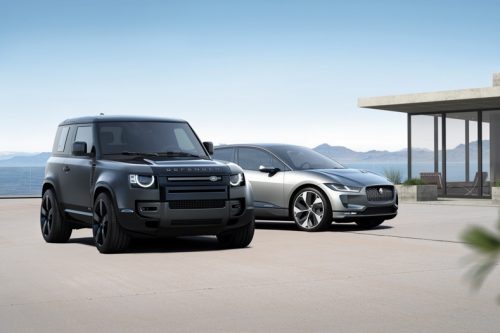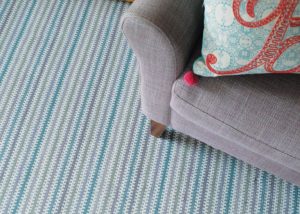Microchip woes drive Jaguar Land Rover to £412m loss

The motor industry’s microchip shortage hit sales at luxury car maker Jaguar Land Rover (JLR), leading to a pre-tax loss of £412m for the year to March 31.
The car maker, which has production plants at Halewood in Merseyside and Solihull and Castle Bromwich in the West Midlands, said the ongoing problem drove down revenues by 17% to £18.3bn, while the previous year’s pre-tax profit of £662m, before exceptional items, was transformed into a pre-tax loss of £412m before a fourth quarter £43m exceptional charge relating to the group’s business in Russia.
Russia and Ukraine historically account for about 2.5% combined of global sales
JLR ended the fiscal year with total cash and short term investments of £4.4bn and total liquidity of £6.4bn, including the undrawn revolving credit facility of £2bn through July 2022 – £1.5bn through March 2024.
The company revealed that the number of cars it sold during the year was impacted by the microchip shortage. Wholesales for the full year were 294,182, down 15% on 2021, and retail sale were 376,381, down 14%. Wholesale sales are the finished cars JLR sells as a business, while retails are vehicles customers buy from retailers.
The impact on working capital of the reduced volumes in the first half of the financial year resulted in a free cash outflow of £1.16bn for 2022’s figures. However, the working capital outflow is expected to be recovered over time as volumes gradually increase.
The mix of electrified retail sales (BEV, PHEV and MHEV) increased to 66% for the full year compared with 51% in the prior year. And the company said that, while production and sales remain constrained by semiconductor shortages, it continues to see strong demand for its products with global retail orders at record levels of 168,000 cars.
Orders for the New Range Rover have grown to 46,000, while demand for the Defender remains strong with 41,000 orders.
Chief financial officer, Adrian Mardell, said: “Despite the ongoing semiconductor supply constraints limiting production, we have delivered a second successive quarter of positive cashflow demonstrating our continuing focus on revenue optimisation and cost efficiencies.
“Despite the present chip supply, inflation and other challenges, our lower breakeven point should position us well as volumes gradually recover.”
JLR said its Refocus transformation programme significantly exceeded the original £1bn target for 2022 and delivered £1.5bn of value in the year, mainly achieved achieved through digital initiatives, market performance, cost efficiency and investment savings.
The car maker expects the global semiconductor shortage to continue through the next fiscal year, with gradual improvement. However, the COVID lockdowns in China, as well as the new Range Rover Sport model changeover, are expected to limit volume improvements in the first quarter of the new fiscal year, possibly resulting in negative EBIT and negative cash flows in the quarter.
Volumes are expected to improve progressively thereafter, and JLR aims to achieve a five per cent EBIT margin and £1bn+ positive free cash flow in financial year 2023 for the full year.
Chief executive, Thierry Bolloré, said: “The environment remains difficult in light of the global chip shortage and other challenges.
“However, I’m encouraged by the continuing strong customer demand for our products, highlighted by a record order book. And we are continuing to execute our Reimagine Strategy with exciting new products like the Defender, New Range Rover and just announced New Range Rover Sport while we are rapidly progressing our plans for a new generation of electric vehicles with our all electric Jaguar strategy and BEV first EMA platform for new Land Rover products.”








